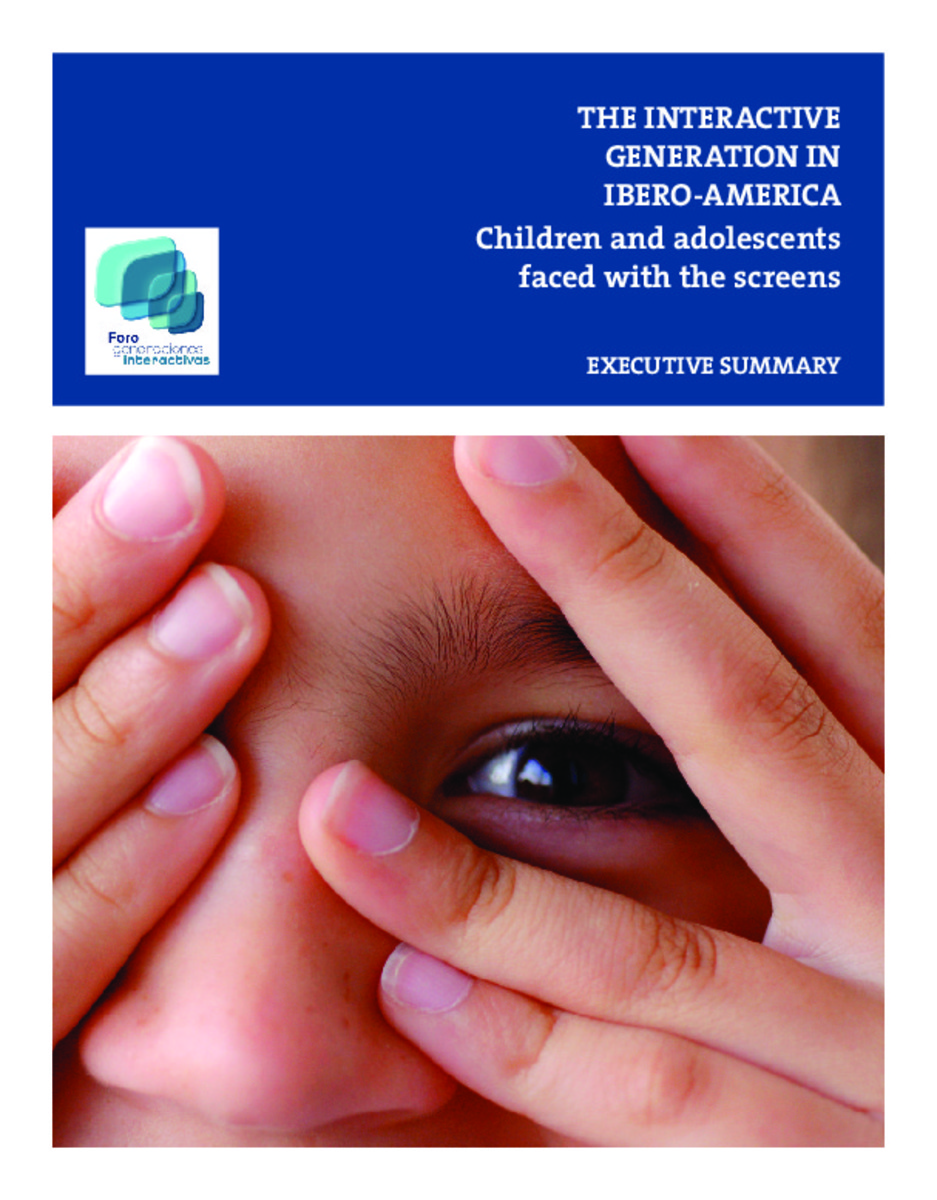Full metadata record
| DC Field | Value | Language |
|---|---|---|
| dc.creator | Bringué, X. (Xavier) | - |
| dc.creator | Sádaba-Chalezquer, C. (Charo) | - |
| dc.date.accessioned | 2011-04-19T11:16:16Z | - |
| dc.date.available | 2011-04-19T11:16:16Z | - |
| dc.date.issued | 2008-11 | - |
| dc.identifier.citation | Bringué, Xavier; Sádaba, Charo. The Interactive Generation in Ibero-America. Children and adolescents faced with the screens. Ariel: Colección Fundación Telefónica, 2008 | es_ES |
| dc.identifier.uri | https://hdl.handle.net/10171/17801 | - |
| dc.description.abstract | In the last few years, we have witnessed a generalization of the use of Information and Communication Technologies in all the scopes of society. We may notice directly, in our jobs and our relationship with the others, the impact of these devices, but there is an age group where this infl uence is neat and clear in a way that we as adults hardly understand: children and adolescents. This age group has become familiar immediately with technologies that, for those who have the responsibility of their education, still remain totally unknown. This raises important challenges that begin with the knowledge of how this Interactive Generation is growing up. However, this challenge is not new: In the 50’s, another screen revolutionized society as well: television. Nevertheless, it took it nearly twenty years to reach most homes and as many more to become a priority object of study. To this day, it brings up numerous dilemmas to legislators and researchers. At the dawn of XXIst century, the new screens open a new revolution that, unlike the previous one, runs much faster. It has hooked the young audience since the beginning and has generated problems and opportunities which were unknown up until now. And the television generation feels obliged to decide and act on a different generation, that has grown in a very different social, cultural and educational context, and that, just like interactive media, is not linear and it does not respond to previously known patterns. The present study tries to offer a refl ection on what are the features that identify the Interactive Generation, particularly in Ibero-America. This executive summary gathers the details of the methodology applied to the study of Interactive Generations in Ibero-America, a review of the main research studies and groups focused on children, young people and new technologies, the conclusions and the global results of the sample, organized by screens (Internet, cell phones, videogames and television). | es_ES |
| dc.language.iso | eng | es_ES |
| dc.publisher | Ariel | es_ES |
| dc.rights | info:eu-repo/semantics/openAccess | es_ES |
| dc.subject | Children | es_ES |
| dc.subject | Interactive | es_ES |
| dc.subject | Screens | es_ES |
| dc.subject | Internet | es_ES |
| dc.subject | Pantallas | es_ES |
| dc.subject | Tecnología | es_ES |
| dc.subject | Educación | es_ES |
| dc.title | The Interactive Generation in Ibero-America. Children and adolescents faced with the screens | es_ES |
| dc.type | info:eu-repo/semantics/review | es_ES |
Files in This Item:
Statistics and impact
Items in Dadun are protected by copyright, with all rights reserved, unless otherwise indicated.






